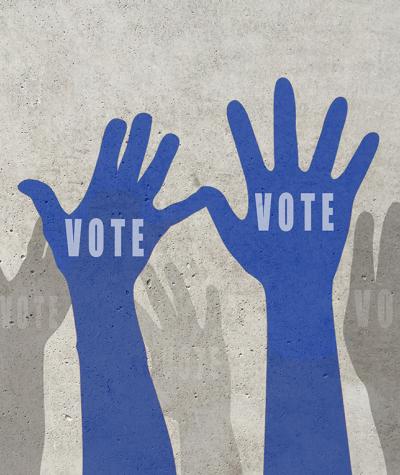Louisiana recently joined the plethora of states expanding access to the ballot for citizens with past felony convictions. The new law restores voting rights to those who served their time but are still on parole or probation for five years.
This issue of restoring voting rights for tax-paying citizens is especially poignant in Louisiana, which has the highest incarceration rate of any state and has more than 70,000 residents on parole.
Louisiana’s new law enjoys bipartisan support in the Republican led legislature and is expected to be signed by Democratic governor John Bel Edwards. CLC applauds the state’s leaders for taking this step forward but it is important to emphasize that this is not a complete solution and the reform will require proactive implementation by the state.
One of the shortcomings of the new law is that it only applies to those who are five years removed from their probation or parole. This means that tens of thousands of Louisianans will continue to be excluded from self-government. Studies show a link between the right to vote and lower recidivism rates, which means that a person with a past conviction is less likely to reoffend. Given Louisiana's recidivism rate of over 40 percent, the legislature should push to make it easier for more people to reconnect with their community by participating on Election Day.
Another issue with this reform is that rather than automatically restoring voting rights, voters who were registered before their convictions will need to re-register and provide “documentation” of the individual’s status. This creates burdensome and unjustifiable barriers to the franchise given that the state already has access to the information necessary to determine who is and is not eligible to vote. Because the law places the burden of proof on the voter, it should at least proactively provide newly eligible voters with the documentation that they will need to register.
Under the new law, the Secretary of State is tasked with revising voter registration forms. Under the National Voter Registration Act, the forms must clearly and expressly explain the eligibility requirements to vote. This will help Louisiana voters avoid the fate of those in other states who were unware of their right to vote due to erroneous or misleading voter registration forms. CLC will closely monitor the situation in Louisiana to make sure that the forms are updated with the correct information.
Finally, Louisiana must take seriously its obligation to educate and register those whose rights have been restored under the new law. When other states have changed their felony disenfranchisement schemes, some have failed to shoulder the burden of informing voters of their rights. Unaware of their rights, many eligible voters will sit on the sidelines because of confusion and misinformation. Unfortunately, this was the case in Alabama where CLC and other organizations have stepped in to make sure that citizens know their rights where the state has failed to inform them.
Felony disenfranchisement creates a tiered citizenship structure that violates America’s commitment to equal rights. Louisiana’s law is not perfect, but it is an important step and part of a national trend. Other states to watch are New Jersey, where legislators are working to ensure that no citizen is denied the right to vote no matter their status in the criminal justice system and Florida, where voters have the opportunity to restore voting rights to more than 1.5 million people.
For decades, felony disenfranchisement laws were used to reduce the political influence of minorities and recent efforts are starting to correct these injustices. But there is more work to be done both by state legislatures and by secretaries of state who are tasked with implementing reforms. More broadly, CLC and other groups are ensuring that a government by the people is by all of the people and will therefore be for all of the people.
